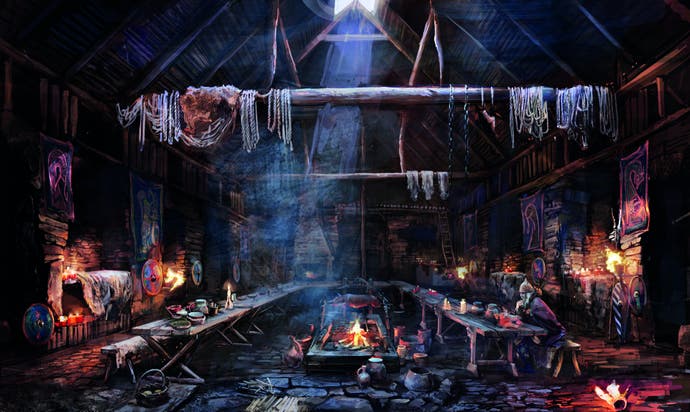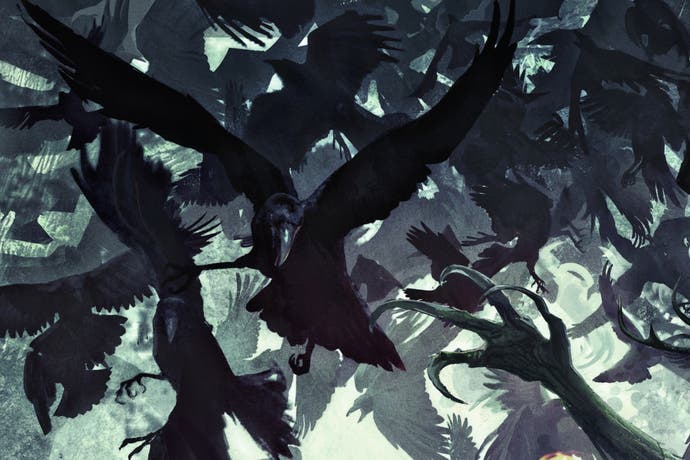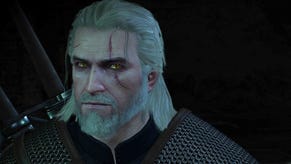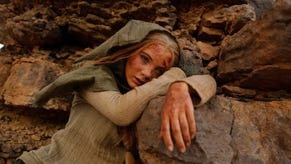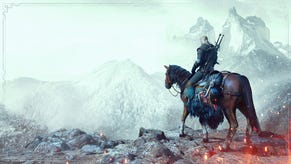The Witcher 3: What is a next-gen RPG?
That and loads, loads more.
I flew to Poland to visit CD Projekt Red, home of The Witcher, recently. I've told the studio's story but that wasn't all I found out. I interviewed at least half-a-dozen people, all from different areas of The Witcher 3 team, about the new game they are making. Here's a rather large dump of all the stuff I found out.
I've tried to clump things together under headings to make finding the information that much easier.
A new generation of RPGs

The Witcher 3 will only be released on PC, PS4 and Xbox One - next-gen hardware. It won't be constrained by needing to work on PS3 and Xbox 360. That, CD Projekt co-founder Marcin Iwinski told me, would result in The Witcher 2.5. "It would be a different game," he said. "It wouldn't be this game." So what makes The Witcher 3 a next-gen RPG?
"We will have the new mimic system, more animations, more sophisticated dialogue, editors, and this would result in more sophisticated depictions and dialogues with subtler camera work, with sounds helping tell the story rather than just be there in the background," writer Jakub Szamalek told me.
"This is really cool for us because the Witcher, from the books, is not a very talkative guy, and there's a lot that he does by frowning, or the face or by just turning away and so on. And we couldn't use that very much in The Witcher 1, which had a rudimentary gesture and mimic system; and The Witcher 2 was an improvement from there but it still didn't allow us much freedom in that respect; whereas The Witcher 3 will have a lot of these new tools."
The result should be the ability to "elicit a wider array of emotions" from players than in previous games, he said.
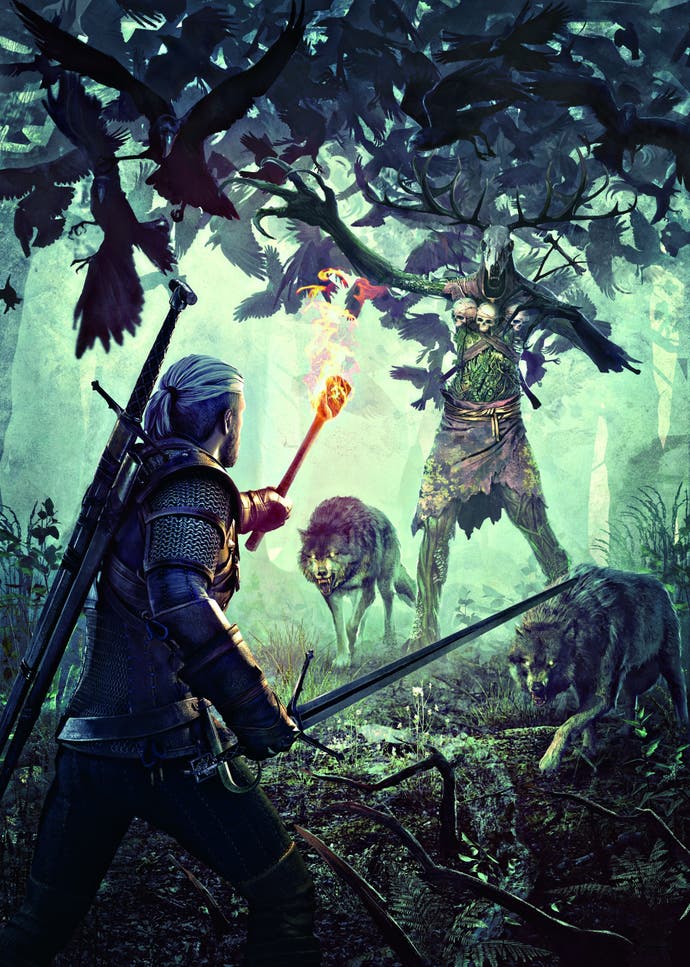
"There will be some very touching moments in The Witcher 3..."
Jakub Szamalek
"There will be some very touching moments in The Witcher 3, and you will have the time, since it's a very long game, to establish relationships with people that are close to you from the very beginning, and see the relationship grow or falter, and this might be a pretty intense experience as well."
The Witcher 3 will look better than previous instalments, too, of course.
"It didn't change that much in terms of poly-count or size of texture," lead character artist Pawel Mielniczuk told me - "it's like 30 per cent bigger than The Witcher 2, but it's nothing actually. Already there were in The Witcher 2 so many polygons on the character that you couldn't see the edges, so nobody cares about the polygons.
"The biggest change from the technical aspect of those characters, and that also impacted how we create them, is that there's a lot of things moving on the characters right now. We've got the clothing system working properly. There were some first-approaches in The Witcher 2 but it wasn't exactly successful... So the clothing, all the dangling [things] - we try to move as many things on the character as possible."
"We're having many more physics objects like little bits of cloth dangling in the wind and chains and stuff," added environment artist Jonas Mattsson. "We want to make it as alive as possible. And when the wind rolls - so you have a grass plain and you see the wind moving - you get this motion. It's much more alive. Before it was just animation."
This ties in to one of the next-gen buzzphrases: physics-based rendering.
"It's not about being physically correct," explained lead engine programmer Balázs Török, "that's something that is a misconception. People tend to think 'OK, this is how, physically, it would work'. It's not about that, it's about making it more consistent.
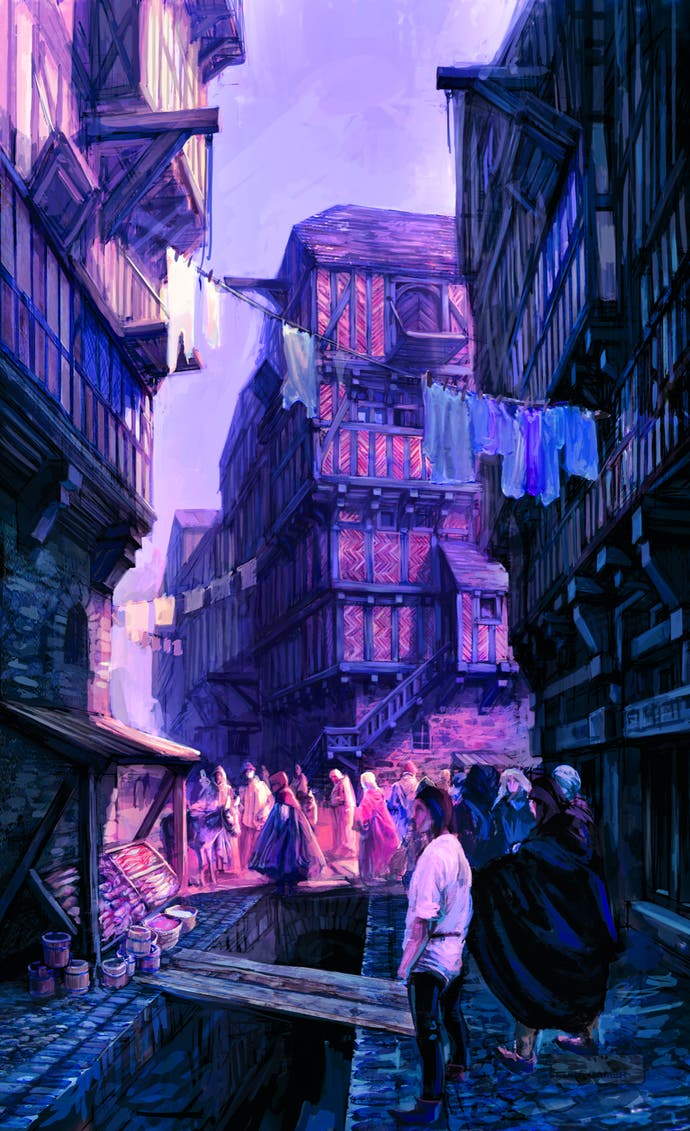
"... there's a lot of things moving on the characters right now."
Pawel Mielniczuk
"We have a full day-night cycle, as we had in The Witcher 2, and in The Witcher 1, and with this it's very important that the artists don't have to make different assets for night or even check the assets in different conditions. They just make one asset and it should behave properly in all lighting conditions and in all weather conditions, because we have a new weather system which is pretty cool."
The importance of time-saving tools when building huge open-world games like The Witcher 3 cannot be understated. Jonas Mattsson told me about a forest-making tool that factors angle of terrain and likely rainfall location and then sprouts a forest. "You would get this natural-looking forest within seconds based upon the values of how rain would fall etc," he said.
Lighting, too, will react to the physical properties of an object, reflecting more realistically. All an artist need do is to pick a material and create the object - the engine computes the rest. "It's just another level of realism," said Pawel Mielniczuk. There's even next-gen fur.
"Physics-based rendering is certainly something that's making the game look much much better," concluded Jonas Mattsson. "We want to have the quality of The Witcher 2 but applied to a large scale. And it's a huge challenge."
More AI characters can be spawned now and they will move and behave more believably. Balázs Török was impressed by the big and believable crowds in Hitman: Absolution. "You didn't see puppets just standing there," he said. "More games will do things like this."
It all adds up to better immersion in a world sculpted by you. "RPG games are very similar to very good movies with good storylines which you remember after you exit from the cinema," said game director Konrad Tomaszkiewicz, "but with this difference: you're deciding what happens, and you are these characters and you feel what this character feels.
"I hope that's where all the next-gen RPGs will go, and give us these unique emotions we can achieve only playing the RPG games."
The new consoles
"We want to have the quality of The Witcher 2 but applied to a large scale."
Jonas Mattsson

"On the PS4 it's very good to have the fast memory," said Balázs Török, "everyone is really happy about that - but the problem is the game has to function on everything.
"No we are not holding it back," he added, "it's just we are not at the stage right now to go in and optimise on each platform specifically. We want to make the game and the whole engine run on everything, with all the features and bells and whistles, and then just optimise, optimise, optimise.
"I don't see a major power difference. The memory is very different but I already said that before. Pure computation power, if you just measure that, there's no major difference."
Both new consoles are like PCs anyway, he added. It won't be until teams really delve into low-level optimisations that the true grunt of each will come out.
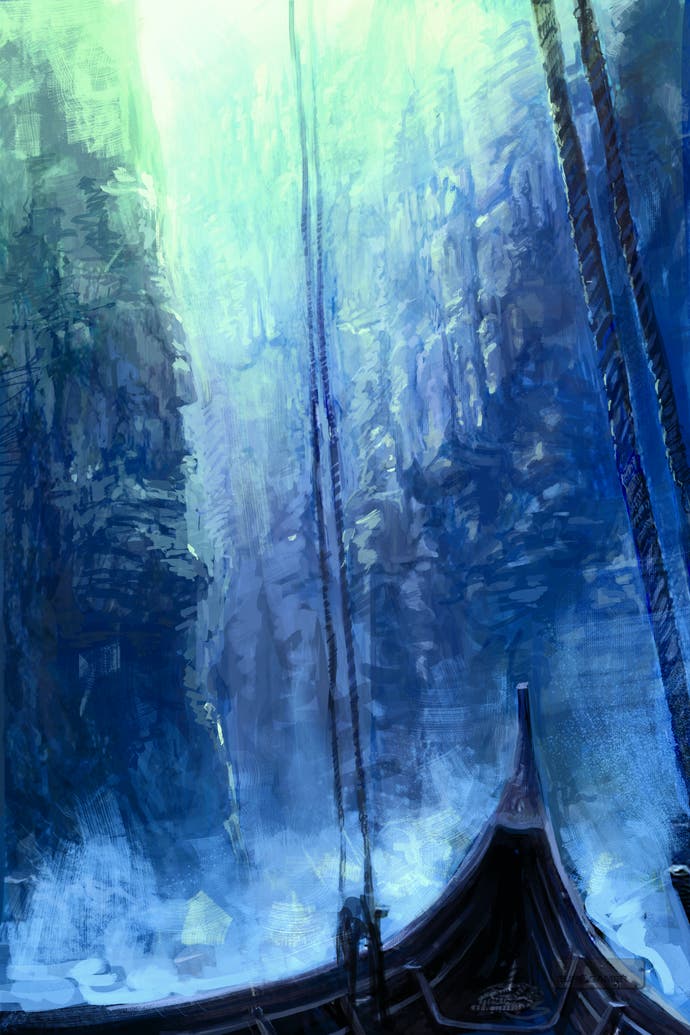
"Pure computation power, if you just measure that, there's no major difference."
Balázs Török
"The Xbox One is pretty easy to understand because not just the hardware is similar to the PC, but everything like the SDK, the API is really similar to what you would find on a PC. On PS4 this is a little bit more complicated, but I personally worked on PS3 before.
"For PS3 it was very important to have a community, to share the information in some ways, but for now it's much easier and everyone will use their PC knowledge and possible previous console knowledge to reach the limit."
Balázs Török did flag up one unusual thing about the Xbox 360 from around 2007/2008, though.
"I saw how Microsoft opened up certain parts that they hid before from developers," he said. "They opened them up, like, 'OK now you can have this back door, and it's risky but you can do this and that...' This is how developers learned a little bit more and more every step. From Microsoft it was a good way to do it to always let the developers do a little bit more."
Does he think Microsoft will do the same with Xbox One?
"I don't know because we are not at the stage where they would open up something new," he answered. "We have what we have right now, and maybe we will have some more low-level access in the future.
"It's not like they would open up new hardware or anything - there's nothing new in there. It's new ways to do something. Both companies are already using all the knowledge they have from previous products to make the API tailored to games ... so I expect that they will do something like, 'OK now you can do this; it's extremely risky - only do this if you know what you're doing! But you can do this.'
"It will happen, eventually, but right now we are preparing for it."
Kinect and Move
"I saw how Microsoft opened up certain parts that they hid before from developers..."
Balázs Török
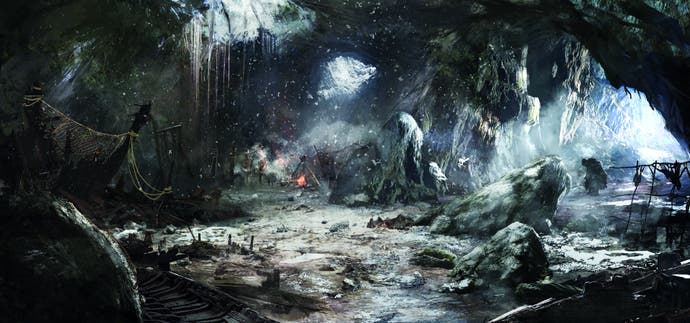
"We've got Kinect support but it's too early to speak about it," game director Konrad Tomaszkiewicz said. "For sure we got some specific features for Xbox One and PS4. I can't spoil much but yes we are thinking about it."
"We had a lot of discussions with platform holders about it," studio head Adam Badowski chimed in. "The feeling is simple: there are games for Move and Kinect, and there are games for standard controllers, and The Witcher [3] is definitely for standard controllers.
"We have some plans [for Kinect] but it's too early to talk about it."
What about the DualShock 4 touchpad? "It's interesting," Badowski answered, "it helps, especially in the UI."
Tomaszkiewicz also confirmed that there will be SmartGlass support in the Xbox One version of The Witcher 3. "Yes," he said, "we are planning some stuff for it, but again it's too early to really say much about it."
4K is also something that's on the table for PC, but there are UI compatibility issues to take into account. "We're trying to organise it," Badowski said.
Sex and maturity
"There are games for Move and Kinect ... and The Witcher [3] is definitely for standard controllers."
Adam Badowski
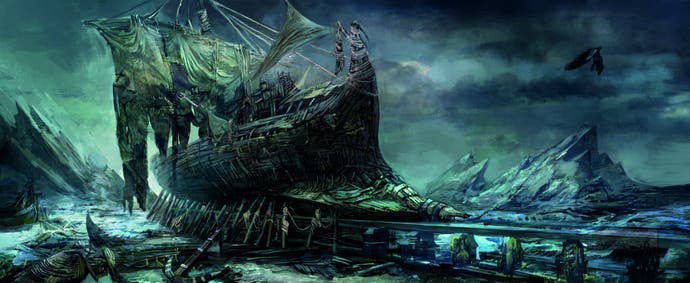
With added realism will come added controversy when games get violent and when games get sexy. The Witcher 2 had nudity and sex scenes, and The Witcher 3 will as well.
"We got the same approach that we got in the second Witcher," said Konrad Tomaszkiewicz. "We don't want to make fakes, we want to show stuff like it is in real life. The most important for us is to achieve the huge immersion of the player in the game. Players who are playing our game are adult players, and they are waiting for the game which is real. If we fake these sex cut-scenes it will break immersion in the game.
"In the second Witcher it wasn't problem," he added, "it was very nice, and I didn't hear any complaints about it. If you compare with the first Witcher, where we've got the sex cards, there was a lot of different opinions."
"In The Witcher 3 we are keeping the eroticism but we're working really hard at making sure it's interwoven with the story," added writer Jakub Szamalek. "It's not 'just because': it serves as a tool to tell a story between characters and give another dimension to the relationship we are portraying.
"Gamers do want adult entertainment, and the way in which The Witcher 2 was received shows that this is true. We're working very hard to make sure The Witcher 3 is fun but also a game for mature players and treats them seriously."
"In The Witcher 3 we are keeping the eroticism but we're working really hard at making sure it's interwoven with the story."
Jakub Szamalek

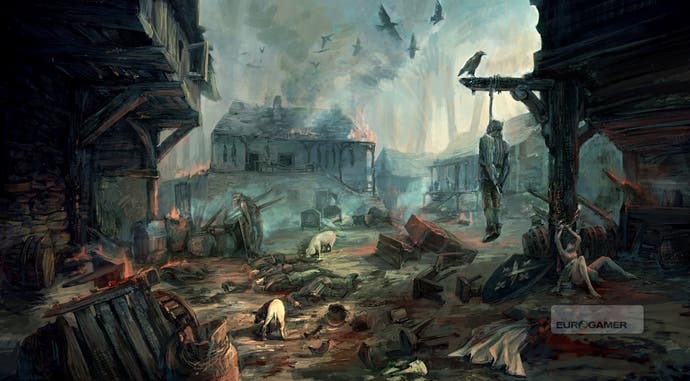
The studio's mantra is to make 18-plus games that will cover topics not suitable for younger audiences. "This is something we are very very clear about," he said. The problem is that adult games are treated differently than adult books or films, and as a former novelist he would know.
"So even though we're trying to tell a story for adults, we are sometimes criticised for being too brutal or putting too much eroticism in our games, whereas books or movies that are addressed to the same audience, and go much further than we do, do not get the same sort of criticism. We are looked upon in a slightly different way.
"Gamers do want to treat it seriously," he said, "and do want to have certain difficult topics covered in games, and they don't want games to shy away from difficult issues."
That does not mean parading women around in their underpants, lead character artist Pawel Mielniczuk said. "Triss in The Witcher 2: she was sexy. We show her in [sex] scenes but her usual outfit was quite covered - you saw just the head and the fingers.
"The whole shape of the character of course must be quite attractive, but we don't try to show a lot of nudity on the characters. That's why we have all those sex scenes.
"Like in real life," he added. "You see a girl on the street: usually she's not naked, doesn't wear a bikini in the middle of the street. When you invite her to your apartment maybe you will see it, right? So this approach."
A sorceress like Triss must be attractive, incidentally, because that's how they're described in Andrzej Sapkowski's Witcher books.
"The look of the female characters, the sorceresses especially, it was kind of forced by the book," he explained, "because in the books it was said that they have the plastic surgeries by their magic. It was said that they were a one-hundred-and-twenty-year-old with a hunch and she's really ugly, but they are using magic to make them look like twenty-year-old sex bombs.
"It was said that the sorceresses Geralt is meeting in the books, and they also appear in the game, are quite... they're pictured in the game as twenty-year-old sex bombs - most beautiful women in the world. We can't do it a different way."
A Game of Thrones
"... we don't try to show a lot of nudity on the characters. That's why we have all those sex scenes."
Pawel Mielniczuk
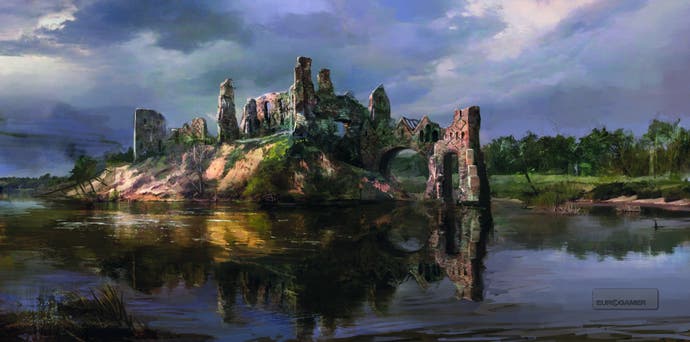
Andrzej Sapkowski's Witcher books are dark and grim and brutal, and more than a bit similar to the world of A Song of Ice and Fire - better known by the HBO television adaptation A Game of Thrones. This is a happy coincidence. Whereas The Witcher 2 launched into a world only just experiencing A Game of Thrones, The Witcher 3 will launch into a world besotted with it.
"It's encouraging us to go further with what we already did," said writer Jakub Szamalek.
"They're both fantasy universes but they don't use fantasy as an excuse for using certain clichés or doing away with psychology of characters and concentrating on dragons and magic and so on. These are worlds in which people are very believable and realistic, and they have their own aims and goals," he added, "and they can be pretty ruthless."
The Witcher 2 was a largely political story, but The Witcher 3 story will be a personal one. "In The Witcher 3 there will be more about Geralt's relationships with the people close to him, both enemies and friends," explained Szamalek. "We as writers are really excited about that, because there will be certain issues that we really want to cover and make the most of."
Konrad Tomaszkiewicz hailed it as "the best storyline we've got so far". "I'm really proud of it because it closes the story of our previous games, and also it closes the story of the books. On the other hand you can play this game without any knowledge of previous games or books; it will be fun for you and you will understand everything. It's a huge achievement because I was very afraid that it will be hard to make that game."
Quests and hidden consequences
"It's encouraging us to go further with what we already did."
Jakub Szamalek
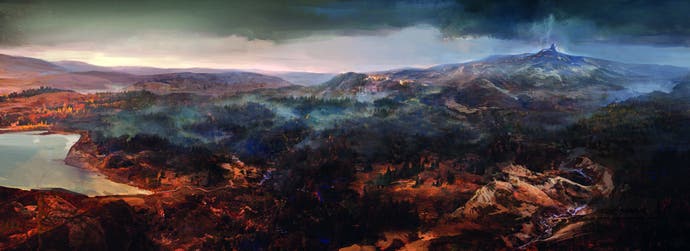
"The consequences in our games are not immediate," said Szamalek, "so when you do something you learn about what happened because of that later on, so that you cannot simply reload and try a different option. We definitely want players to take responsibility and feel responsible for what they do in the game."
I saw this first hand in a demo, when Geralt sided with a faction only to witness an unforeseen and significant twist later on. I'd have picked differently had I known. Will people wanting to pick a very deliberate line through the hazy-grey morals of The Witcher 3 feel this is unfair?
"You're correct that some players like to control everything," lead quest designer Mateusz Tomaszkiewicz (Konrad's brother) responded, "but because some things are unexpected you feel like this world isn't just a schematic. It's not a mechanical world where you only choose obvious things and you are always in control. People who live in it have their own motivations; factions go their own ways and things change. That is more realistic. It's just the approach we chose in our game."
As difficult as Dark Souls?
"It's not a mechanical world where you only choose obvious things and you are always in control."
Mateusz Tomaszkiewicz
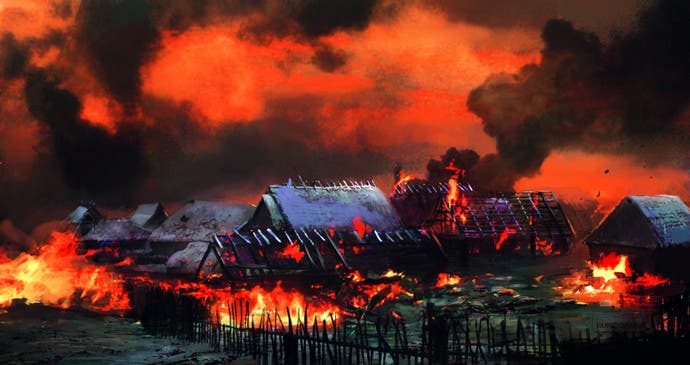
Game director Konrad Tomaszkiewicz loves Dark Souls and Demon's Souls and has finished both a number of times. He likes how "you are stronger because you as the player learn how to control your character and how to play to kill these monsters". You stop thinking about how to do something and feel the fight instead. "And this is a really great thing," he believes.
"We tried in The Witcher 2 to make this high difficulty level but it was a mistake," he admitted, "because we tried to mix two different games." The Witcher fans wanted a traditional RPG with a story, not a challenge based on their dexterity.
"Dark Souls influenced me very much because I love games like this, but I understand after The Witcher 2 that we should less experiment on stuff like this but more focus on the things which people love in our games," he said.
The learning curve in The Witcher 3 will be "proper", then - not like the much lamented learning curve in The Witcher 2. There will be difficulty levels in The Witcher 3, but unlike The Witcher 2, Normal won't feel like Hard. "It wasn't a good decision," Tomaszkiewicz added. "Right now we're changing it and I believe that everyone will go in this world very smooth and we will not get problems like it was in The Witcher 2."
No paid DLC, no multiplayer, maybe an Arena
"We tried in The Witcher 2 to make this high difficulty level but it was a mistake."
Konrad Tomaszkiewicz
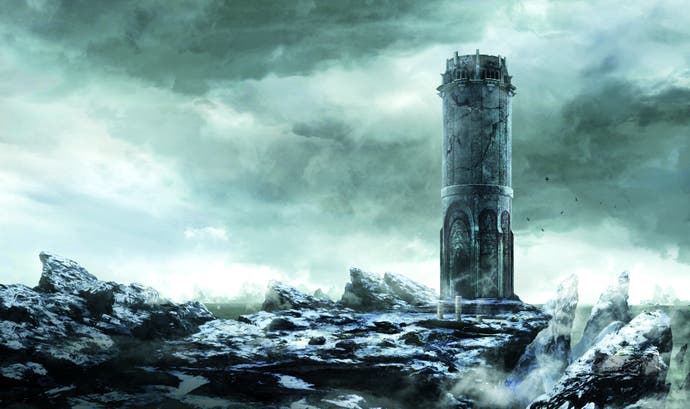
"No. No no no," was Adam Badowski's emphatic answer to whether The Witcher 3 will have paid DLC. "Not for small DLC or something like that.
"Maybe there's an option to have a huge expansion pack or something because of the size and scope of the game. This is the only option [for paid DLC]. But small DLC and DLC packs: it's not big enough [to charge for]."
There will be some online features because of the online nature of the platforms the game will be released on, but not multiplayer. "None. At all. We had some rumours about it but that was just a misunderstanding," Badowski said.
How about an Arena mode like The Witcher 2 had? "Arena mode was a kind of an experiment, quite cool. We don't know yet," he shrugged, "and this is true. We have other plans.
"When we are saying 'we don't know' don't get me wrong: we know, it's just that the decision is not made because the market is changing, the situation is changing. The game is set in stone but all other surroundings are fully dynamic."
The Skyrim comparison
"Maybe there's an option to have a huge expansion pack ... This is the only option [for paid DLC]."
Adam Badowski
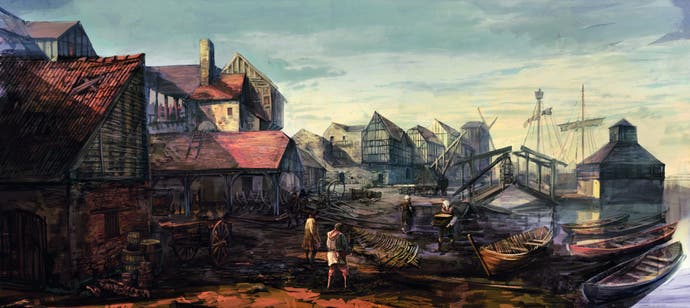
All that stuff Konrad Tomaszkiewicz said about Skyrim, about how the quests and story were "generic" - that was a "misunderstanding", he told me.
He wanted to say that he loved Skyrim but it wasn't a game about story. "This is the game about the exploring of the world, about finding the items, upgrading my character." There is a story that's "quite entertaining" but short. "They don't even try to make these characters very memorable ... It was some simple story."
He mentioned it to highlight how CD Projekt Red is doing something different - taking a different tack.
Consider Grand Theft Auto 5, he said. "It's good to compare these two games. GTA is not RPG, but if you took the storyline, which is movie-like in GTA, compare it with the world of Skyrim and the open-world game where you've got a lot of things to do - you've got character development, you can kill the monsters and so on - and add to this choices and consequences: this is what I want to achieve with The Witcher 3. That was my point.
"It wasn't my intention to say that Skyrim was a poor game," he added, "because it's not. It's a great game; it's got different advantages than The Witcher. That's all."
"It wasn't my intention to say that Skyrim was a poor game..."
Konrad Tomaszkiewicz
